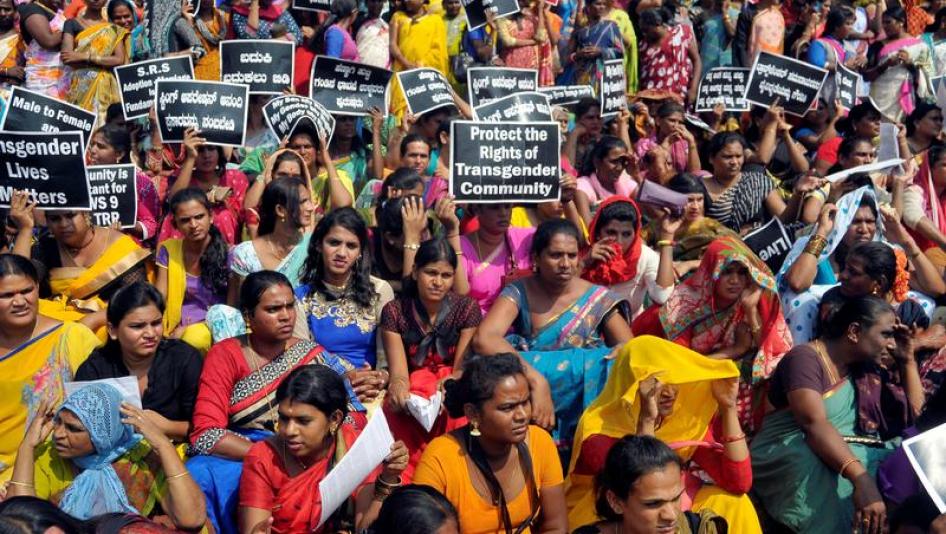National Legal Services Authority vs. Union of India and Ors.
Members of Transgender Community, by filing a writ petition, sought legal declaration of their gender identity than the one assigned to them, male or female, at the time of birth and their prayer is that non-recognition of their gender identity violates Articles 14 and 21 of the Constitution of India. Hijras/Eunuchs, who also fall in that group, claim legal status as a third gender with all legal and constitutional protection.
Transgender is generally described as an umbrella term for persons whose gender identity, gender expression or behavior does not conform to their biological sex.
Gender is a significant issue in the legal sphere because it determines rights in relation to marriage, adoption, inheritance, succession, taxation and welfare. Pre-existing law in India only recognized the binary genders of male and female. Due to lack of legislation protecting the rights of transgender people, this community faced discrimination in various areas of life. This case sought to demonstrate that the lack of legal measures to cater to the needs of transgender went against the principles of the Constitution.
| Article 14 of the Constitution of India: State shall not deny to “any person” equality before the law or the equal protection of the laws within the territory of India. It does not restrict the word ‘person’ and its application only to male or female. | Transgender persons who are neither male/female fall within the expression ‘person’ and, hence, entitled to legal protection of laws in all spheres of State activity, including employment, healthcare, education as well as equal civil and citizenship rights, as enjoyed by any other citizen of this country. Discrimination on the ground of sexual orientation or gender identity, therefore, impairs equality before law and equal protection of law and violates Article 14 of the Constitution of India. |
| Article 15 and 16 of Constitution of India. Article 15 states that the State shall not discriminate against any citizen, inter alia, on the ground of sex. Article 16 states that there shall be equality of opportunities for all the citizens in matters relating to employment or appointment to any office under the State. | The discrimination on the ground of ‘sex’ under Articles 15 and 16, includes discrimination on the ground of gender identity. The expression ‘sex’ used in Articles 15 and 16 is not just limited to biological sex of male or female, but intended to include people who consider themselves to be neither male or female. |
Article 19(1) (a) of the Constitution All citizens shall have the right to freedom of speech and expression, which includes one’s right to expression of his self-identified gender. | The values of privacy, self-identity, autonomy and personal integrity are fundamental rights guaranteed to members of the transgender community under Article 19(1)(a) of the Constitution of India and the State is bound to protect and recognize those rights. |
| Article 21 of the Constitution of India Protection of life and personal liberty – No person shall be deprived of his life or personal liberty except according to procedure established by law. | Article 21 protects the dignity of human life, one’s personal autonomy, one’s right to privacy, etc. Right to dignity has been recognized to be an essential part of the right to life and accrues to all persons on account of being humans. Recognition of one’s gender identity lies at the heart of the fundamental right to dignity. Gender, as already indicated, constitutes the core of one’s sense of being as well as an integral part of a person’s identity. Legal recognition of gender identity is, therefore, part of right to dignity and freedom guaranteed under our Constitution. |
Final Verdict:
It was held by the court that discrimination on the basis of sexual orientation or gender identity includes any discrimination, exclusion, restriction or preference, which has the effect of nullifying or transposing equality by the law or the equal protection of laws guaranteed under our Constitution, and hence inclined to give various directions to safeguard the constitutional rights of the members of the TG community.


